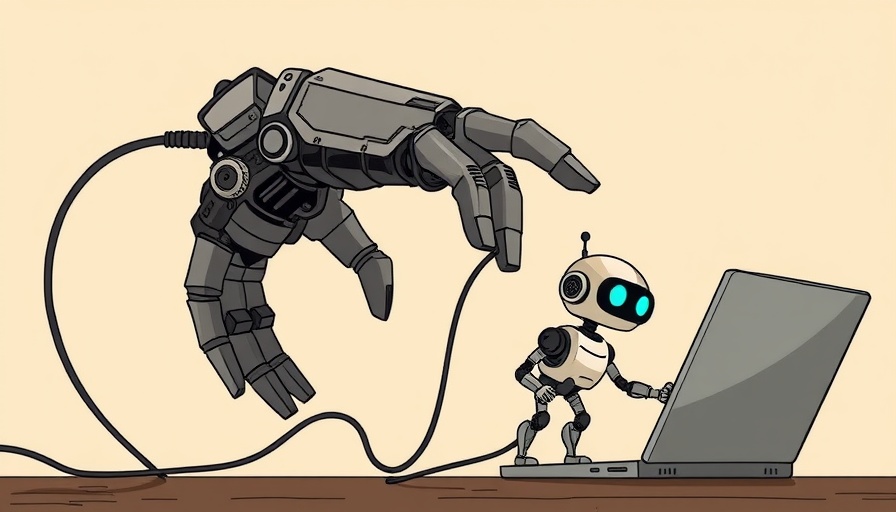
The Curious Case of Apple Intelligence at WWDC 2025
As we approach WWDC 2025, excitement fizzles amidst skepticism regarding the fervor surrounding artificial intelligence (AI). Tech aficionados and industry professionals are acutely aware that Apple, once a pioneer for innovation, now finds itself trailing behind competitors like Microsoft and Google. The buzz surrounding AI integration in consumer technology leads many to wonder about the value it brings to everyday use. Apple's CEO Tim Cook may soon take the stage, and the question on everyone’s mind is: will Apple Intelligence be a significant part of the discussion, or viewed merely as an afterthought?
Diverse Perspectives: The AI Debate
For many in the tech community, AI is a double-edged sword. While the transformative capabilities of AI applications in sectors like healthcare and scientific research are widely acknowledged, the practical value in consumer technology remains ambiguous. At Computex 2025, I listened to countless representatives from various laptop manufacturers extolling the virtues of their AI features. Yet, concepts such as voice-assisted email composition and automated image generation left me questioning the utility of such technologies.
Why are we celebrating the mere existence of features like Microsoft's Copilot when we are intimately aware that the core user experience still centers around simplicity and efficiency? After all, writing emails is a task most of us complete within moments. This disconnection signifies why, as consumers, the expectation for more meaningful innovation must take precedence over flashy AI buzzwords.
A Risk of Alienation
The narrative surrounding AI often has unintended consequences. When prominent voices in corporate giants advocate for AI as a replacement for human interaction, it raises red flags. I personally felt that sense of alienation upon hearing professionals boast about never writing their emails. It signals a shift from the value of human engagement to the impersonal efficiency of technology. This push risks losing the personal touch that drives real relationships in a business context.
Is Less More? The Case for Minimal AI Integration
Considering all these mixed feelings, what would it mean if Apple chose to minimize its focus on AI during WWDC 2025? Would it be a sign of prudence, steering clear of the trend that seems more gimmicky than groundbreaking? After grappling with the Microsoft Surface Pro 12, which was riddled with AI pitches but fell short on measures like performance and battery life, I can safely say that a minimalistic approach could be refreshing.
Everyone's needs vary significantly, and focusing on tangible enhancements like design and user experience could revitalize the conversation around innovation. Many tech-savvy consumers, including CEOs and business professionals, crave devices that foster productivity rather than distract them with flashy AI capabilities.
Emphasizing Human Experience Over Technology Hype
As we prepare for the announcements at WWDC, one can’t help but emphasize the importance of human experience over mindless technological hype. While AI holds vast potential for specific industries, consumers primarily seek reliability and intuitive user experience. If Apple can prioritize these points, the path forward may be far more beneficial for its user base. Long shelf lives, improved performance, and streamlined interactions tend to resonate more than the next big AI tool that promises to do what we’ve always done.
Moving Forward: Actionable Insights for Tech Professionals
The crux of the matter lies in understanding that technology must serve a purpose in enhancing our professional lives—rather than suffocating us under an overabundance of features with little clarity on their benefits. Tech leaders need to ask the following questions when integrating AI into their products:
- Does this feature genuinely solve a problem?
- Will it enhance productivity or distract from important tasks?
- How do we retain the human element in digital communication?
By keeping these considerations in mind, we can forge a future where technology enhances our lives without submerging us in chaotic cycles of adjustment to AI trends.
In conclusion, as WWDC approaches, I hope for substance over spectacle and a renewed emphasis on the meaningful experiences technology can provide. It’s not merely about showcasing AI but rather ensuring its presence genuinely enhances user experience.
 Add Row
Add Row  Add
Add 




 Add Row
Add Row  Add
Add 

Write A Comment